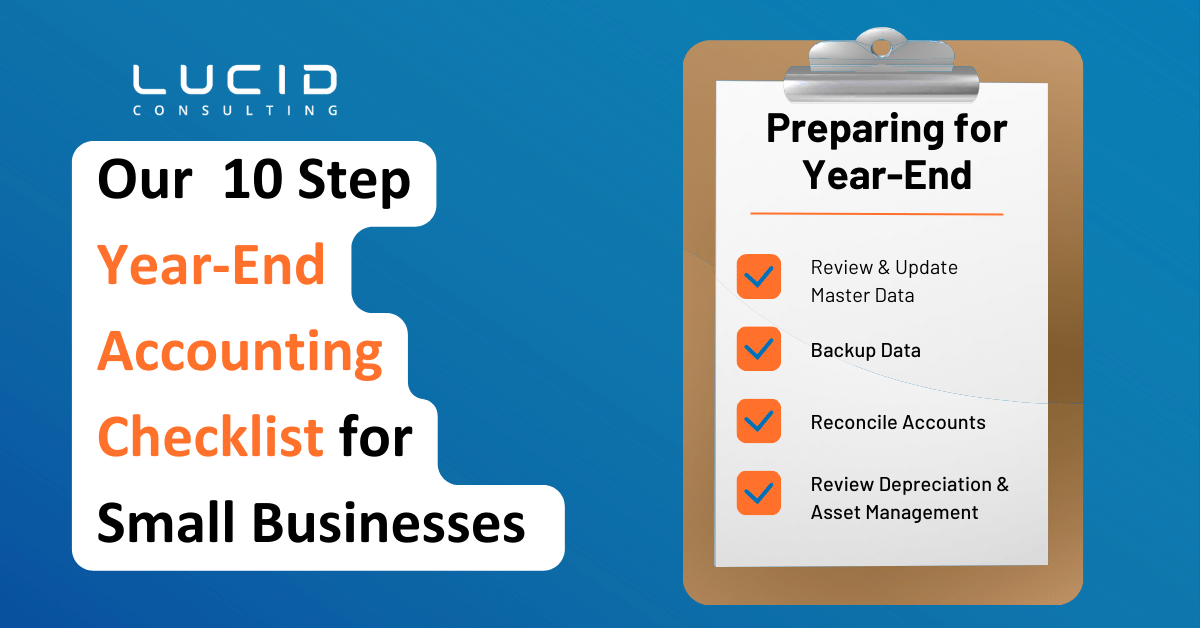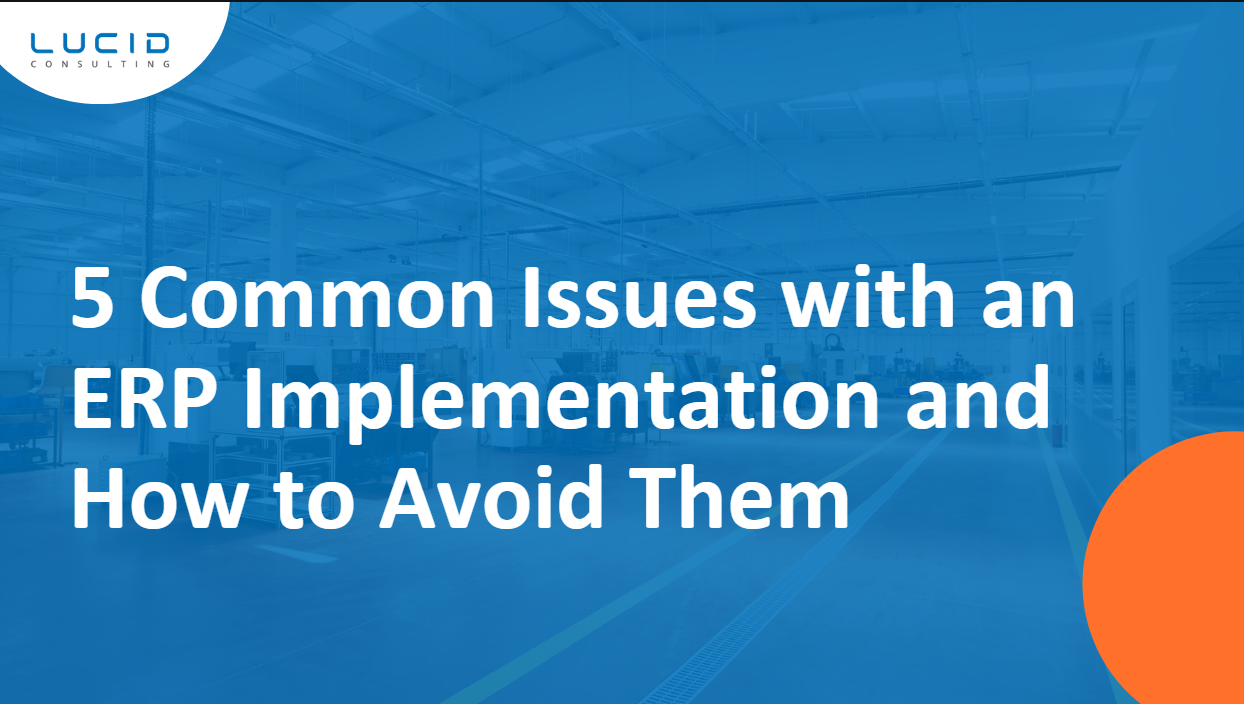2 min read
Our 10 Step Year-End Accounting Checklist for Small Businesses
 Kaitlin Nelson
:
Dec 14, 2023 8:21:48 AM
Kaitlin Nelson
:
Dec 14, 2023 8:21:48 AM

As the year draws to a close, it's crucial for businesses to conduct a thorough year-end accounting process review. A comprehensive year-end checklist can serve as a guiding light, ensuring that your business is well-prepared for the transition into the new fiscal year. Let's delve into the 10 key steps that should be a part of your year-end routine to set the stage for a successful 2024.
1. REVIEW AND UPDATE MASTER DATA
Start by ensuring that data is accurate and up-to-date. Check and update customer, vendor, employee, and other masterfile data in the system. This foundational step lays the groundwork for accurate financial reporting and analysis.
2. BACKUP DATA
Protect the business against potential data loss by performing a comprehensive backup. This ensures a secure restore point prior to engaging in any year-end activities.
3. RECONCILE ACCOUNTS
Reconciliation is key to maintaining financial accuracy. Reconcile bank accounts, general ledger accounts, accounts payable and receivable and perform full or partial counts to validate inventory. This helps ensure that financial records align with the physical assets of the business.
4. REVIEW DEPRECIATION AND ASSET MANAGEMENT
Update fixed asset records, calculate depreciation, and generate reports. This step is vital for accurate financial reporting and compliance with accounting standards.
5. REVIEW AND ADJUST TAX CODES
Ensure that tax codes are up-to-date with the latest regulations. This includes both company-level considerations such as state business and occupation taxes, state tax rates, and payroll-level elements like state labor and industries, state unemployment, and other relevant tax codes.
6. RUN FINANCIAL REPORTS
Generate financial statements, such as a balance sheet, income statement, and cash flow report. These documents provide a comprehensive snapshot of the business and insight into the company’s financial performance for the previous year.
7. CLOSE OUT FINANCIAL PERIODS
Complete any open transactions, including sales orders, purchase orders, work orders, invoices, and payments. Then close subsidiary modules such as manufacturing, payroll, accounts receivable, accounts payable, and bank reconciliation. Lastly, close the general ledger and open a new fiscal year to ensure a seamless transition into 2024.
8. CREATE AND ARCHIVE BACKUPS
Safeguard year-end financial data by not just creating backup copies, but also storing them securely. Adhere to data retention policies and legal requirements to protect the business from potential data breaches.
9. REVIEW AUDIT, COMPLIANCE, AND SECURITY
Prepare documentation and reports for the annual financial audit as necessary. Verify compliance with any new regulatory requirements and update internal documentation, including user manuals and process guides.
10. MAKE POST YEAR-END ADJUSTMENTS
Correct errors or make adjustments for the previous year. Import the new fiscal year budget and analyze the past year's performance to identify areas for improvement.
ELEVATE YOUR BUSINESS EFFICIENCY WITH AN ERP SYSTEM
If you're aiming to enhance efficiency and financial data integrity, consider the benefits of an ERP system. An ERP system can streamline your operations and provide a robust financial foundation for future growth. Contact us for a free consultation on what ERP system is right for your business.

Top 5 Must-Have Field Service Management Software Features
Field service management (FSM) software has become an essential tool for businesses that provide on-site services. It helps streamline operations,...




